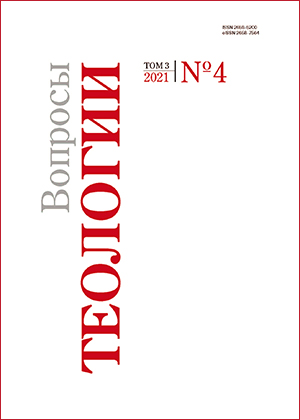Religion as the “art of being an object”: Some modern cryptotheological approaches
DOI:
https://doi.org/10.21638/spbu28.2021.408Abstract
In the article, the author proceeds from the assumption that the obsession with the subject status, characteristic of the New European man, devalued the “art of being an object”. The article deals with intellectual strategies for the rehabilitation of the “object” status: the social grammar of Eugen Rosenstock-Huessy and the cybernetic epistemology of Gregory Bateson. Rosenstock-Huessy draws attention to the fact that in speech acts the speaker appears not only as the subject-source of speech, but also as the object to which the listener’s reaction is directed. Moreover, the condition for the formation of the subject of speech is the listener’s object position. This statement captures a wide range of interpretations: from psychological and pedagogical to theological. Bateson criticizes Cartesian epistemology, which, without reflexive grounds, places a person in the position of a subject, thinking, acting, that is ultimately controlling, and ignores or critically treats the position of the object. However, such epistemology gives an incomplete picture of the cognitive or practically transformative act, since it does not register the moments when the cognizing and acting subject receives feedback from the known or transformed reality — becomes an object. The “art of being an object” is proposed as an essential characteristic of religion as such. In fact, a religious situation (at least in theistic religions) is a situation of being in a complex subject-object relationship with the Absolute, where a person, as a rule, does not control the situation, but voluntarily or forcibly becomes the object of influence, control. At the same time, a religious person is not indifferent to the field of a certain power he finds himself in, therefore he is forced to use art or the “gift of discerning spirits”. In the article’s conclusion, secular forms of object behavior are criticized.
Keywords:
object, subject, religion, theology, cryptotheology, dialogism, epistemology
Downloads
References
References
Downloads
Published
Issue
Section
License
Articles of "Issues of Theology" are open access distributed under the terms of the License Agreement with Saint Petersburg State University, which permits to the authors unrestricted distribution and self-archiving free of charge.




